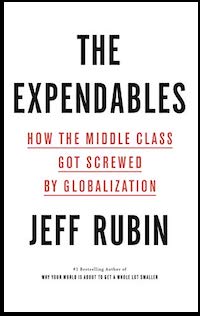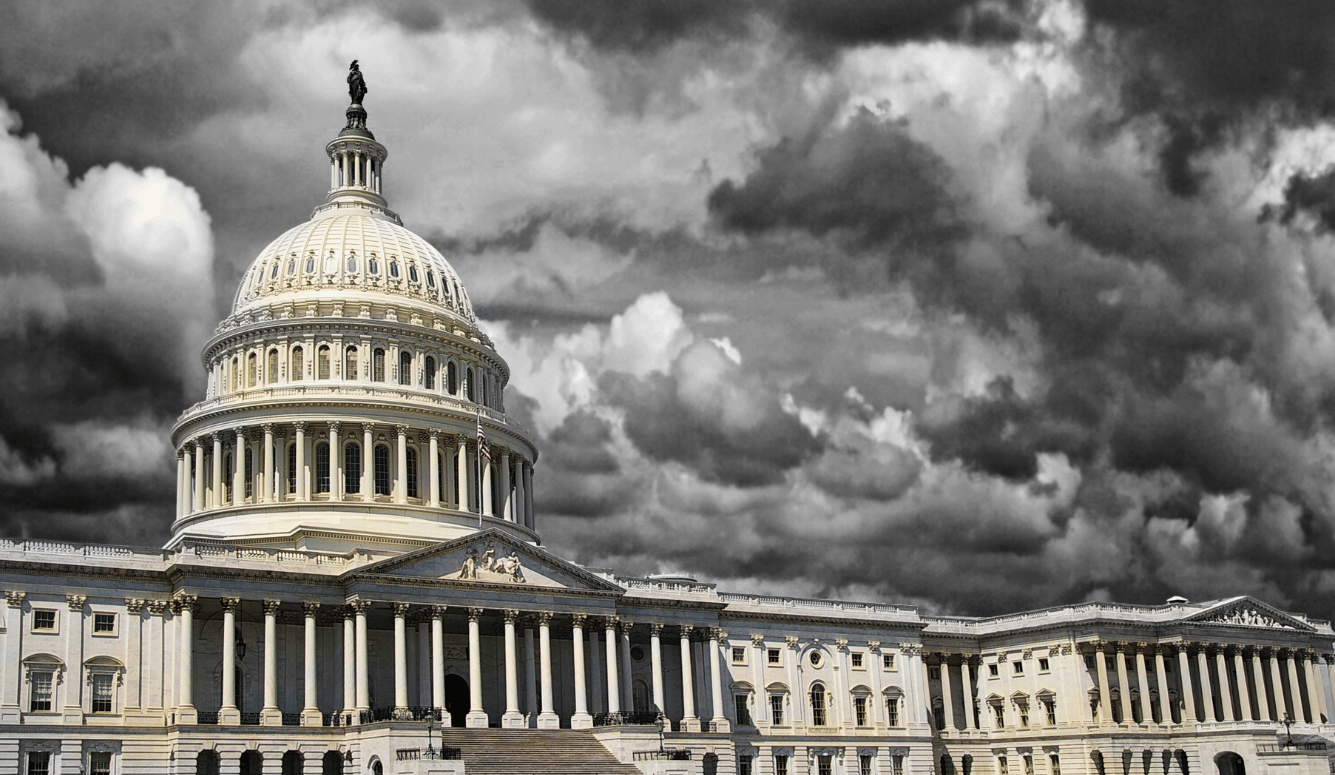BLM
What Divides Us Is Class, Not Race
What we need are policies—including trade and immigration policies—that help us carve up the economic pie in a way that sees all workers get their fair share, no matter what their ethnicity.

Black lives matter. It’s become a rallying cry for those seeking social and racial justice. These three words express the idea, symbolized by the death of George Floyd, that race defines the fault line fracturing our society.
Racism doesn’t exist in a vacuum. It always has an economic context. When Brownshirts attacked Jewish shop owners in Nazi Germany, an opening act in one of history’s greatest genocides, they were acting on anti-Semitic propaganda that cast Jews as leeches sucking Germany’s lifeblood. This was an ugly and murderous lie. But it became attractive to those suffering amidst the reparations that had been imposed on Germany after World War I, and whose effects impoverished the country’s workers.
The villains in today’s racism narrative tend to be cast as privileged, white middle-aged men—beneficiaries of a system that everyone can see is unfair. But the idea that the injustice baked into our economic systems can be reduced to race is false. For years, I was chief economist at one of Canada’s biggest banks. Since I stepped down from that position, I’ve written books and think-tank reports that explore the vulnerabilities and inequities that permeate our society. As I write in my newly published Penguin Random House book, The Expendables: How the Middle Class Got Screwed By Globalization, the problem is deeply rooted in decades of outsourcing.
But while international trade agreements tend to operate outside of the world of YouTube and Twitter, racial injustice plays out in dramatic scenes that are widely shared. Moreover, if you look at the likes of Jeff Bezos, Mark Zuckerberg, or Elon Musk, it’s easy to create a certain kind of racial narrative. The rich guys often seem to be white, and their wealth eclipses that of the old 19th century robber barons. Some 2,000 plutocrats now own more wealth than the four billion poorest people on the planet (who represent more than 60 percent of the world’s population). It’s arguably the most skewed distribution of wealth we have witnessed since the latter days of the Roman Empire. And we all know how that ended.
So if you think the dice are loaded, you’re right. They are. But most middle-aged white American men aren’t named Bezos, Zuckerberg, or Musk. On average, like all North American workers, regardless of race, that vast majority hasn’t seen a real wage increase in almost fifty years. The middle class, once the dominant majority in American society and the steady flywheel of its economy, is now beleaguered, shrinking, and downwardly mobile. Like everyone else, they’re expressing their fear and insecurity in a political language that is often unhealthy, and sometimes hateful. None of this excuses acts of racism. But the problem isn’t going to be solved with hashtags. As the gilded one percent takes up more economic space, the competition for what remains becomes more bitter. In a way, the message I bring is one of racial harmony: You’re all getting screwed together.
The issue of immigration presents a microcosm of the divergent class-based economic interests at play. Populist demagogues—Donald Trump obviously being their American leader—want border walls to keep migrants out, laws to block refugees, and draconian limits on legal immigration. They also routinely exploit real tragedies in society, from gang violence to COVID-19, as a means to further a xenophobic narrative. But Bernie Sanders, an avowed socialist who became a darling of the Democratic party’s hard-left faction during the recent primaries, also spent years railing against illegal immigration and its effect on wages. More recently, he’s had to blur his message to accommodate the hyper-progressive nature of modern Democratic politics. But as recently as 2015, Sanders declared that open borders are “a Koch brothers proposal” that “would make everybody in America poorer. You’re doing away with the concept of a nation state, and I don’t think there’s any country in the world which believes in that.”

As for Trump, his reprehensible posturing may play well to an electoral base of angry white middle-aged men. But it also betrays the interests of his own class. Most plutocrats, now and in the past, have been strongly pro-migration—since a larger work force gives them a larger pool from which to hire armies of low-wage workers (including, say, the waitresses and lawn-care workers who staff Trump’s golf properties). The laws of supply and demand apply to labor as much as to widgets, with price being expressed as wages. Despite decades of automation, labor remains an essential factor of production, especially in low-skill service industries.
At the height of the Great Migration, which saw over 3 -million Europeans head to America in the latter half of the 19th century, Andrew Carnegie called migrants “a stream of gold.” In modern times, organizations such as the Business Council of Canada are similarly enthusiastic about immigration, even if they are careful to avoid rhetoric that highlights their own profit motive. Moreover, they can point to the fact that in many OECD countries, natural population growth likely won’t provide us with enough future workers. Some baseline level of immigration is necessary just to make sure our economy continues to grow.
Certainly, the stream of gold remains powered by surging headwaters. Estimates extrapolated from a 2018 Gallup poll suggest there are no fewer than 750 million people around the world who seek to migrate. Most of them live in low-wage countries—what President Trump has obscenely referred to as “shitholes.” Trump’s America may look like a swamp of racism to progressives. But from the outside, it apparently still looks appealing. The Gallup data suggest that 150 million potential migrants would pick the United States as their preferred destination. (Another 46 million picked Canada, while 36 million would move to Australia—both numbers being in excess of these countries’ respective populations.)
Migrants don’t just provide labor. They tend to provide cheap labor. While certain immigration systems (such as Canada’s) are calibrated to attract well-educated immigrants, it’s poor people who have the most incentive to leave, and who are most likely to take employment that native-born workers reject. This is especially true of the illegal migrants living in the United States, many of whom have no legal protection and are paid at rates below minimum wage. The less plutocrats pay their workers, the more they keep for themselves.
Migrants not only tend to sell their own labor cheap. They also bring down the wage demands for native workers in fields with low barriers to entry. Even during the Great Migration, large-scale immigration was associated with domestic wage stagnation. One of the reasons why Jewish workers began fleeing New York’s entry-level clothing-trade positions, for instance, is that every ship that docked at Ellis Island contained new armies of apprentice tailors and seamstresses from Europe. This was a boon to textile manufacturers and consumers; but not for workers, who were selling into a buyer’s market. So those who already had jobs were forced to either accept lower wages, try to find a way to buy into the capital-owning class, or find a new industry altogether.
Of course, not everyone’s wages are threatened by migrants. In many OECD jurisdictions, including Canada, the supply of doctors and other highly specialized professionals is bottlenecked by self-regulating trade bodies. Since the Middle Ages, guilds have protected skilled trades from outsiders who would otherwise undermine the prevailing pay structure. If everyone could become a surgeon, surgeons would make a lot less. And so it’s no surprise that many upper middle-class progressive voters, who see no threat from newcomers whatsoever, are perfectly happy to dismiss concerns about immigration as presumptive racism.
Here in Ontario, where I live, there is a College of Physicians and Surgeons, and a Royal College of Dental Surgeons. There’s no College of Unskilled Labor. So it’s those without education and job security who bear the brunt of migrant workers’ impact on local wages. The job of lobbying the government in this area once fell to unions. For instance, American unions lobbied Congress to pass the Immigration Acts of 1921 and 1924, which cut migration to a small fraction of pre-World War I levels. But union power has been dwindling for decades. In fact, many of the lowest paid members of our society aren’t even getting a minimum-wage paycheck. They’re self-employed “business contractors” working low-paid gig-economy jobs as food jockeys or uber drivers.
In America, it’s black men who have often borne the impact that migrant workers have had on the wages of native workers. Since the passage of the Immigration and Nationality Act in 1965, which opened America’s doors to more newcomers, the participation rate of adult black men has fallen steadily. As recently as 1975, it was still almost 80 percent. For the last decade, by contrast, it’s been below 70 percent. Meanwhile, the share of the workforce comprised of foreign-born workers has increased from five percent in 1970 to around 20 percent today, a share that exceeds the percentage of foreign-born individuals in the population-at-large. A 2003 Cornell University study found that it’s unskilled black Americans who’ve been most adversely affected by wage competition from immigrants, just as native-born white workers were underbid during the Great Migration. What I am describing here has nothing to do with racism or police brutality.
Something similar played out in Australia, which in 1901 adopted a White Australia policy that persisted into the 1960s. The policy was engineered by racists seeking to keep Asians out of their country. But despite the malign motives, it did prevent workers from being bid down by poorer newcomers. As in the United States, it was organized labor that campaigned for restrictions. And just as the Trump administration has vowed to cut immigration in modern times, so, too, has Prime Minister Scott Morrison’s Liberal government in Australia.
Progressives naturally oppose the cuts in both countries. But we have to pick our poison: History shows that surges in immigration are invariably met with suspicion, and often violence, by the native-born labor force. And in any case, as Bernie Sanders understands, high-immigration policies exacerbate the impoverishment of the same poor constituencies that progressives seek to protect.

More from the author.
It should be noted that the backlash against immigration is often expressed within racial categories. Workers from Nigeria, Zimbabwe, and other African countries who’ve migrated to South Africa have faced terrible violence from locals who resent their competition in the job market. And in the mid-19th century, it was white Christian Irish immigrants fleeing the Potato Famine who stoked the anger of restive urban workers—as dramatically portrayed in Martin Scorsese’s 2002 masterpiece Gangs of New York. Bad economic times tend to push people into tribes—and race is just one way that such tribes self-organize.
A modern-day (and decidedly less violent) version of this intra-racial pattern is represented by London’s so-called Polish Plumbers. Something like a million Poles migrated to Western Europe since their country joined the EU in 2004. A majority settled in the United Kingdom—part of the nearly 17 million “posted workers” in the European Union who live and work in a country other than their own. For the most part, they come from Eastern Europe and seek jobs in the more affluent west.
What drives them is what drives Central American migrants who seek entry into the United States. They’re looking for higher incomes, better schools, a brighter future for their families. These are dreams that everyone shares. The difference is that posted workers are legal, while many Central American migrants who cross the border are not. The idea that whole nations—including their low-paid workers—will someday celebrate the ideal of “open borders” is a fantasy, just as Sanders told us five years ago. And given the crushing effect on the poorest members of our society, it is ironic that it is progressives who embrace this fantasy most fervently. In Britain, Prime Minister Boris Johnson, who campaigned to yank Great Britain from the EU (and hence its acceptance of posted workers), can thank the Polish Plumbers for giving him the greatest Conservative majority since Margaret Thatcher—as their presence helped him sweep formerly Labour-voting working-class constituencies across northern England.
I’m not supposed to say this, but I will: Taking a knee to Black Lives Matter, or hauling down monuments, isn’t going to change any of this. Nor will corporate diversity policies, many of which are trumpeted on social media by the same conglomerates that are hiring low-cost labor in droves. What we need are policies—including trade and immigration policies—that help us carve up the economic pie in a way that sees all workers get their fair share, no matter what their ethnicity.








